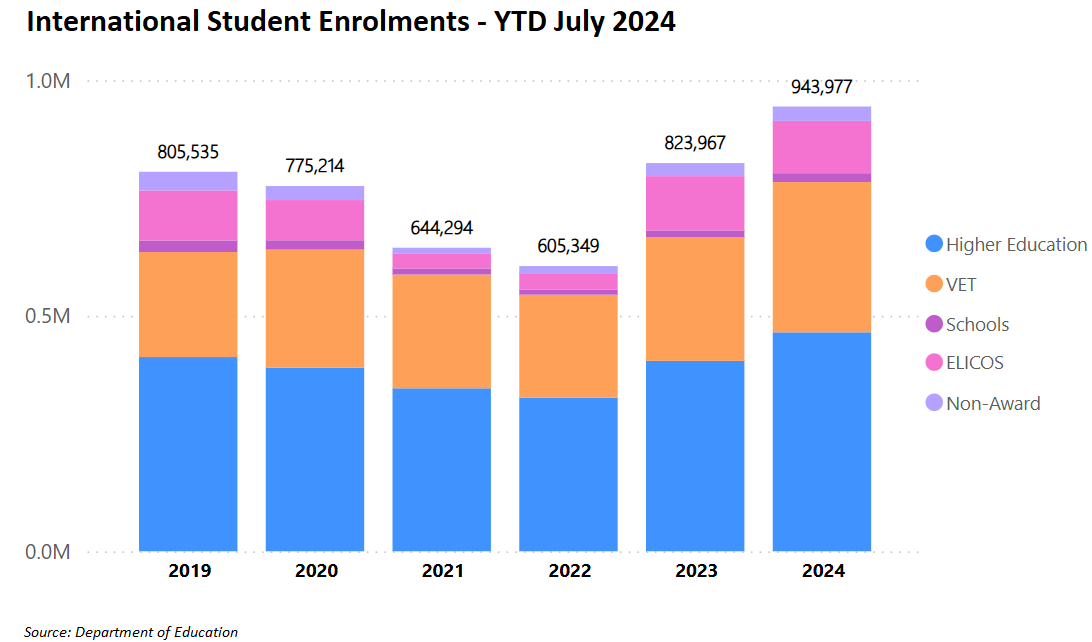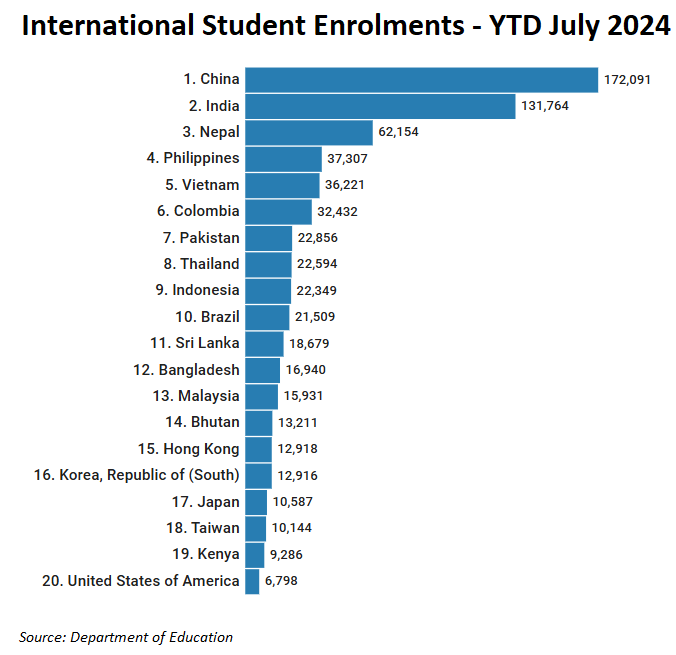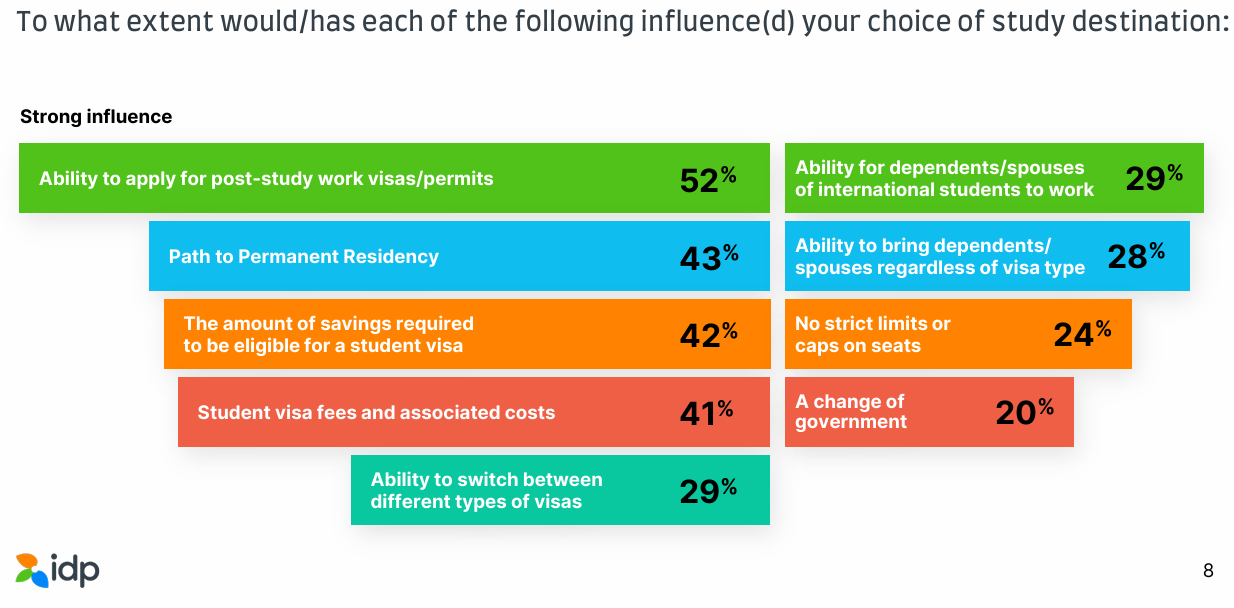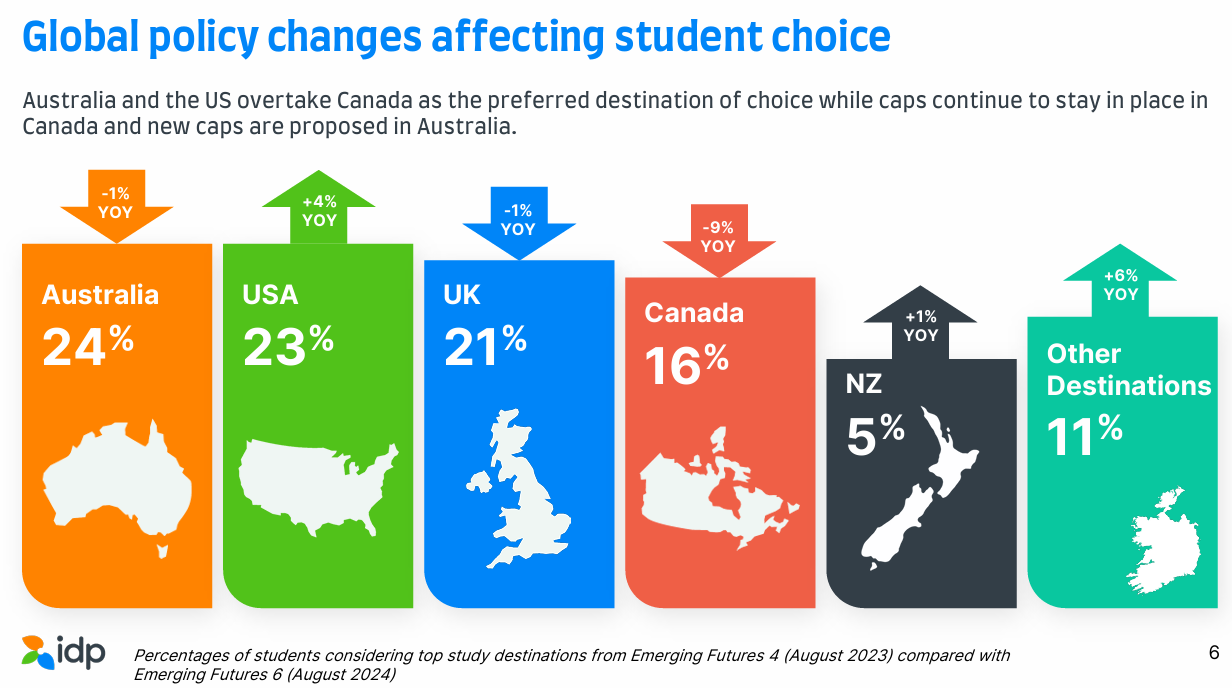The ABC’s Jacob Greber claims that the international education sector is an “export giant” that is being unfairly targeted by the federal government’s desire to lower net overseas migration.
Greber argues that the government’s crackdown on the sector “undermine[s] Australian universities competing against attractive offerings in the UK, Canada and US”.
“Limiting how many fee-paying foreign students each university can enrol up-ends the normal logic of government intervention”.
“It’s akin to telling a baker how many loaves of sourdough she can sell, and to whom and when, even as demand is strong”.
“Because the government is reluctant to address the rise in immigration numbers by reforming skilled migration, another idea that would have hurt businesses screaming for workers, they opted for hitting politically-unloved universities”, he said.
Comparing international education with a baker producing loaves of sourdough is asinine.
The quantity of international students landing in Australia creates external costs for Australians, most notably via their deleterious impacts on the rental market and congestion in our major cities.

The export value of international students is also wildly exaggerated, as explained here.
The reality of the situation is that Australia only receives large volumes of international students because it offers some of the most generous work rights and opportunities for permanent residency in the world.
A 2022 Navitas survey of study intentions showed that students from South Asia and Africa tend to select a study destination based on their ability to receive work rights, a low-cost course, and permanent residency:

South Asia and Africa care about work and migration, not education quality.
It should be no surprise, then, that the fastest growing cohort of students studying in Australia comes from South Asia:

The latest IDP Emerging Futures survey also shows that post-study work opportunities (52%) are the most important factor for international students when choosing a study destination. This is followed by pathways to permanent residency (43%):

Not surprisingly, then, Australia remains the number one study destination of prospective international students:

The above surveys suggest that Australia’s international education trade would collapse if work rights and opportunities for permanent residency were significantly curtailed or cancelled, given that living and working in Australia are the primary motivations of students.
Rather than lowering standards to entice larger numbers of international students of questionable quality to Australia, policymakers should aim to attract a significantly smaller pool of exceptional (genuine) students.
This could be achieved via lifting financial barriers to entry, increasing entrance requirements (particularly for English language proficiency and pre-admission testing), raising pedagogical standards, abolishing group assignments, and severing the link between studying, working, and permanent residency.
These suggested reforms would improve student quality, increase export income per student, improve working conditions in lower-skilled jobs, and lower enrolment levels to manageable and sustainable levels, thereby improving local students’ learning environments and relieving population pressures.
International education must prioritise quality over quantity.

